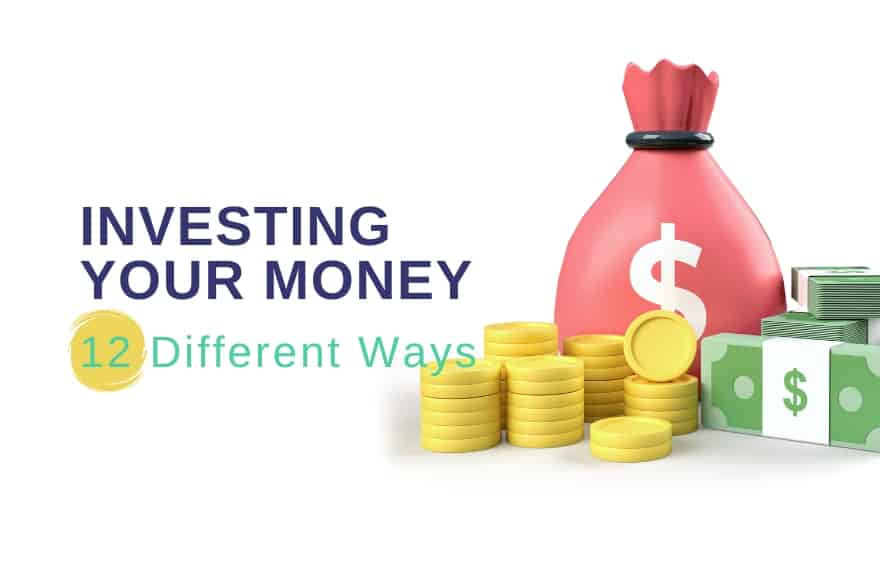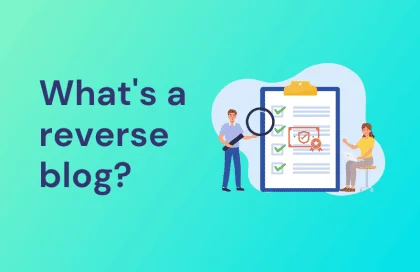Investing money is generally a good idea, but there is always a fear of risk. Beginners must decide what type of risk they’d be willing to take.
We suggest you first consult with a financial advisor or take financial coaching before embarking on your investment journey.
Keep in mind that inflation can lower the value of money over time, and interest rates on bank deposits often rarely equal or exceed the inflation rate.
Be that as it may, it’s safer to deposit money in your bank account than to keep it in your drawer. You also earn interest from your deposits.
Besides bank savings, there are several other ways of making your first investment, especially with limited capital. Below are some options for investing with little money.
Moderate risk investments for beginners
1) Invest with little money in term deposits
Time deposits are low-risk financial products that allow you to earn some return. These have different characteristics – from different subscription amounts to interest rates that are more or less appealing and even with regard to the possibility of making monthly reinforcements.
2) Invest in Savings Certificates
Savings Certificates are public debt securities issued by the State exclusively for natural persons. One of its main characteristics is the reduced value of its subscription, aiming at retail purchases, that is, in large quantities.
3) Investing in Treasury Certificates
Like Savings Certificates, Treasury Certificates are products of public debt. However, they differ in some aspects from the first ones, namely in the minimum investment amounts.
Here you can invest between 1,000 and 1,000,000 euros per account. Another difference arises at the level of interest rates.
4) PPR (Retirement Savings Plans)
A PPR is a long-term investment that can complement retirement pensions. This type of plan is applied by pension fund management companies or insurance companies, where you can invest your money to have some return, depending on the respective annual interest rate.
5) Invest in real estate
Investment in this area brings together several alternatives and the interest of many people, as it allows earning income without (much) work, at least theoretically. For example, if you have a group of ten friends, investing in a property is not that expensive.
The location must be strategic. If you choose to house close to a university area, you will likely have student tenants yearly. If the house is located in a tourist area, even better.
6) Invest in stocks
Shares represent a small part of a company’s share capital. When investing with little money in stocks, you automatically own a share of the assets and earnings of a particular company.
7) Equity, Bond, and Mixed Funds
Of this set, equity funds are the ones with the highest investment risk. However, as with other financial products, the greater the risk, the greater the probability of a more expressive return.
Equity funds are subject to several price changes in a short period. Even so, they can be a solution to consider for long-term investments.
On the other hand, bond funds vary significantly in terms of risk and yield, above all due to the various types of bonds. In addition to credit risk, bond funds can also be affected by interest rate risk. If interest rates rise, the value of bonds tends to fall, and you may lose money when investing.
High-risk options
In addition to the solutions for investing money with a low to moderate risk, some options require a greater predisposition to take risks.
Although they can be attractive due to the potentially high returns, they are generally very complex (and even dangerous) investments for those who simply want to manage their savings.
So that you can evaluate more carefully, here are five examples:
1) CFD (Contract for difference)
Also known as contracts for difference, they allow you to invest in various financial assets, such as stocks or currencies, by acquiring a position in a particular asset. This position is defined by the type of bet made, being “long” when betting on a rise and “short” in the case of a fall.
They are an interesting product for those who want to invest in assets that can only partially be acquired. This format also allows you to play with possible devaluations because you can bet on a decrease in value and win on the CFD.
2) Futures
They are also financial contracts in which the future purchase or sale of an asset at an already stipulated price is explicit. The contract settlement is carried out at the time of its expiration, and market exchanges organize these transactions. They cover the price of certain financial assets and raw materials used in agricultural and industrial production.
In practice, buying a futures contract is the same as taking out a loan to buy the same amount of stock today. Since the contract duration is equivalent to three months, if the shares do not reach the value stipulated in the contract after that period, then the sale of this future on the stock exchange will be carried out through this loan.
3) Cryptocurrencies
They are virtual currencies sold and bought through an encrypted system. Therefore, they can only be exchanged over the Internet. It is a purely speculative investment, and its popularity reveals the trend of an increasingly digital economy.
As the best-known case, we have the example of Bitcoin, which in 2009 became the first virtual currency. Since then, some countries like New Zealand have legalized its use, and Facebook has even expressed its intention to create its own currency.
These transactions are supported by the Blockchain, which is a system that records all movement of funds and prevents this data from being modified after registration.
There is still a high risk associated with this type of investment, largely based on its volatility and lack of regulation. Questions regarding the security of virtual transactions still influence speculation in this type of investment.
4) Hedge Funds
They are free investment funds constituted as collective investments, with managers who, depending on their strategy, invest their clients’ money in different financial assets. Since they are open investments, there is no strong regulation for Hedge Funds.
5) Forex
The Forex Market is a system that is based on the value of the currencies themselves. It is a type of investment that, as it is not regulated and is fundamentally complex, carries a high level of risk.
It consists of the exchange of currencies, including cryptocurrencies, which are traded in pairs, transferring one by the value of the other. These transactions take place on a foreign exchange market, where you can exchange, for example, euros for pounds and vice versa.
The main players in this market are the major international banks, insurance companies, and credit institutions, among other individuals.
If you’re interested in investing in forex, finding a reliable broker is an essential first step. A broker can provide you with a wealth of information, guidance, and support to help you navigate the complexities of the forex market.
With the help of a broker, you can access a wide range of currency pairs, leverage your investments, and benefit from competitive prices and low transaction fees. Also, a good broker should be able to provide you with essential tools for successful trading, for example, access to platforms like MT5 or MT4, accurate market analysis, reliable execution speeds, and competitive pricing.
To learn more about forex trading, you may visit the link for the best brokers for Metatrader 5 as finding a good broker is definitely worth your time and effort
Investing with little money: yes or no?
All this is advantageous, but we must consider these investments’ risks. Investing in stocks can either bring large percentages of profits or lead to losses.
Whichever the case, the possibility of losing money is lower if you make a long-term investment.
On the other hand, investing in mutual funds can decrease the value of shares when there is a loss. However, in this type of investment, the risk is small.
First, it is important to carefully analyze all available proposals and your financial situation before making an investment decision – however the size of the investment.
If your financial coach allows you to invest with little money, then feel free. Investing doesn’t just mean putting a large amount of money into a business idea.
The mentioned investments make it possible to raise capital by employing a small amount of money.






